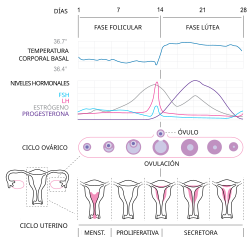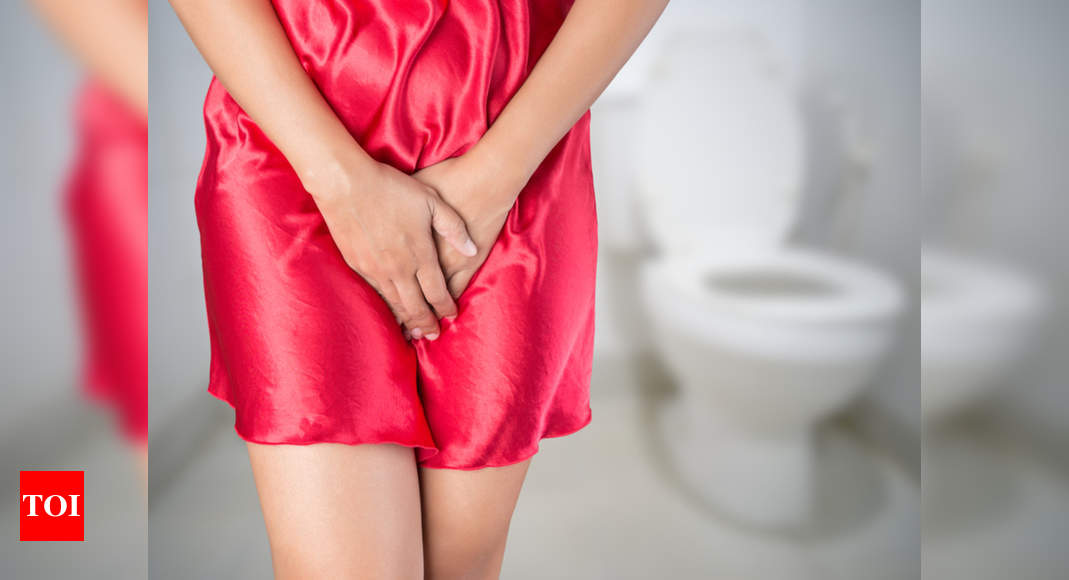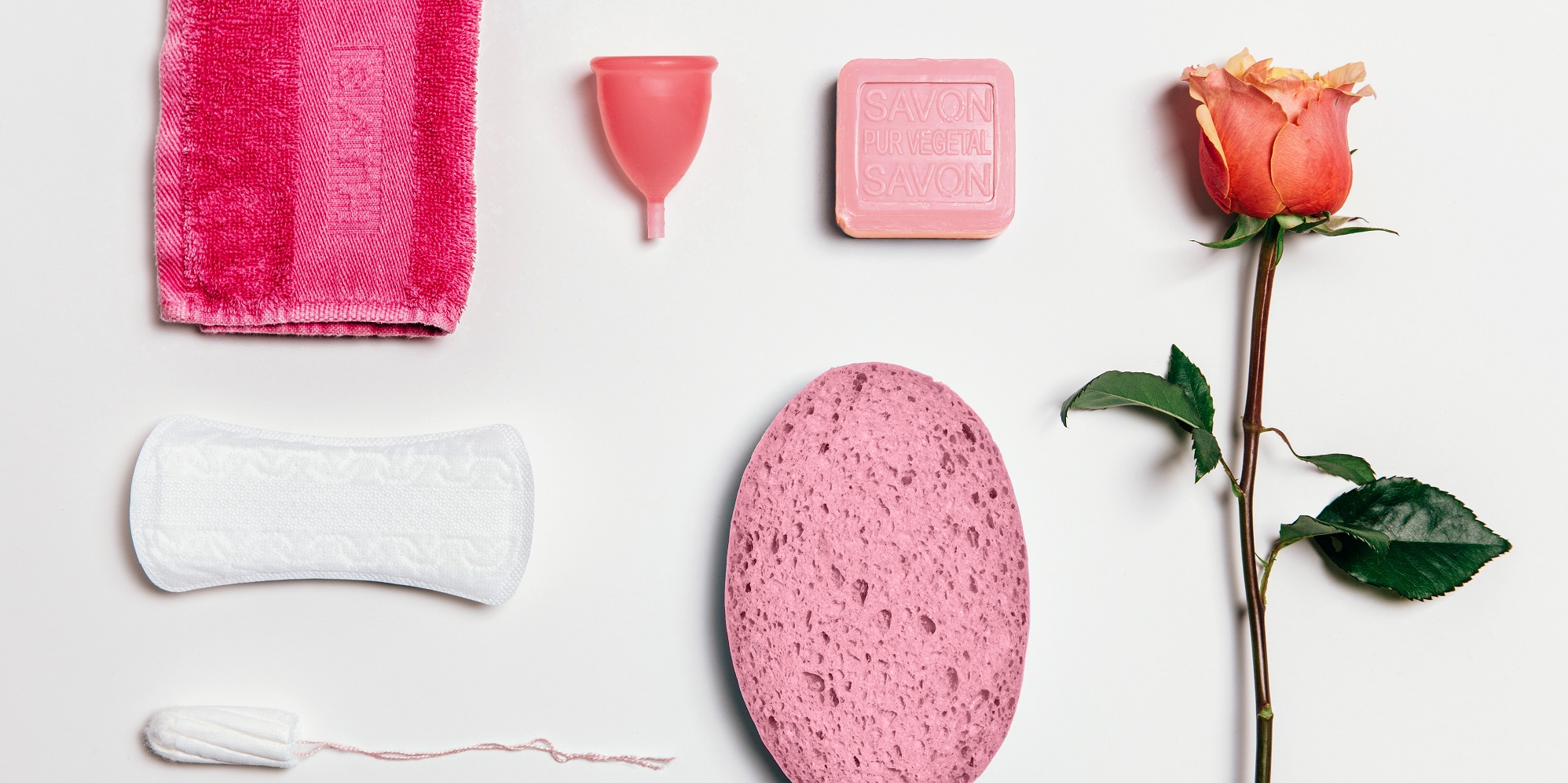The yielding health impact from nonchalant menstrual practices is why there’s a term ‘menstrual hygiene’, to specifically, tackle such issues.

Creator: 4eka | Credit: Getty Images/iStockphoto
Menstrual Hygiene is Necessary for Reproductive and Sexual Health

Diagram of the Menstrual Cycle showing the menstruation phase Credit: Wikimedia Commons
As menstruation is a flow from the vagina that results from the shedding of the endometrial lining and unfertilized egg, it concerns every woman’s reproductive and sexual health.
Are they the same thing? No, but they are very much related.
According to WHO, Reproductive Health addresses processes and systems of reproduction that cut across all stages of life. This means people are free to have a responsible, safe, and satisfying sex life. Much more, that they can reproduce in whichever way and time they want to. Sexual Health, on the other hand, is the state of physical, social, and mental well-being as touching sexuality.
So menstrual hygiene is primary to achieving a state of well-being in these areas hence a contributing factor to having total health for ladies. For clarity, let’s address some specifics.
A. Menstrual Hygiene for Prevention of Infections
Infection is a deviation from the optimal body state; it is abnormal. There are higher chances that the female reproductive system would be invaded by causative microorganisms if there is no proper menstrual hygiene. Possible infections are:
Reproductive Tract Infections
As vast as the factors responsible for Reproductive Tract Infections[RTIs] might be, unhygienic menstrual practices are not out of the loop. For RTIs we can have vaginitis- inflammation of the vagina, abnormal vaginal discharge, Bacterial Vaginosis (overgrowth of bacteria in the vagina) that could exacerbate to Toxic Shock Syndrome (TSS).

Photo Credit-Times of India
Urinary Tract Infections
Bacteria that thrive in the female genitalia due to unhygienic menstrual practices (like prolonged use of a sanitary napkin) can invade the urinary tract. Some of the symptoms of UTIs are:
Pain in the pelvic area and its environs.
Frequent urination (polyuria)
Painful urination (dysuria)
Urinary Incontinence (loss of bladder control, urine leakage) etc.
Therefore, the use of hygienic, disposable sanitary napkins (absorbents) is advised.

Photo Credit: Flo
If it has to be a reusable towel, make sure it is clean and sun-dried. Also, wash your genitalia with clean water and mild soap. The ‘mild’ is important so as not to kill the good bacteria and to maintain the healthy pH levels.
B. It minimizes the risk of Cervical Cancer
Cervical Cancer in Stages
In a place like India that accounts for about one-third of the global cervical cancer deaths, it was found out that one of the major risk factors is poor genital hygiene habits. It clearly also covers lagging menstrual hygiene practices like reusing/sharing menstrual cloths, poor handwashing culture, etc which can promote the spread of HPV (Human Papilloma Virus).
Moreover, people with UTIs and RTIs are more susceptible to this health condition.
So, change your sanitary pads frequently, wash your hands after changing, and if by any chance you use towels, NEVER share!
C. Safeguards against Skin Irritation
Vulva Irritations could be accounted for by some factors, for example, vaginal infections, allergies to a type of sanitary pad, STDs, etc. These irritations could also be caused by slack menstrual hygiene acts that present as rashes, itchy genitalia.
D. Body Odour is Avoidable
The body’s makeup has apocrine sweat glands in the genital region. When the secretions of these glands come in contact with bacteria during menstruation, they can cause body odour.
Here is another crucial reason why it’s necessary to change your sanitary napkin frequently (before it gets soaked). This way, the bacterias are not able to sit around your genitalia for long.
Menstrual Hygiene measures can positively influence other life aspects indirectly, cumulating to one’s total well being.
What are some of these other benefits it presents?
Self Esteem Boost– With adequate knowledge as to how to stay clean during one’s period, proper self-care follows. Because of this, the chances that menstruation would present as a barrier-pain/stains to normal daily activities are slimmer. Hence, females (adolescent girls especially) can lead normal lives even in this phase.
Economic Impact– As unrelated as this seems to the topic, it’s a fact that a lady’s total well-being is a determining factor in how economically empowered she’s likely to be. In prospect, how stable her finances would be.
We can sum all of the above in one statement, ‘Menstrual Hygiene promotes health and wellness‘.

A phenomenal lady whose skills and style do the talking. Her unending desire for better healthcare from persons, through to the public has always been her drive. Over the years, she has volunteered with different NGOs that try to promote a healthy lifestyle.
She hopes to one day create an avenue for people to get the guidance needed for nutrition essential for life, amongst other things. She believes knowledge paves ways. And so, makes it a responsibility to keep learning and impacting others.
Deborah Solomon is a believer and currently a medical student at the Obafemi Awolowo University, Nigeria. She enjoys writing, traveling, music, and cooking.

